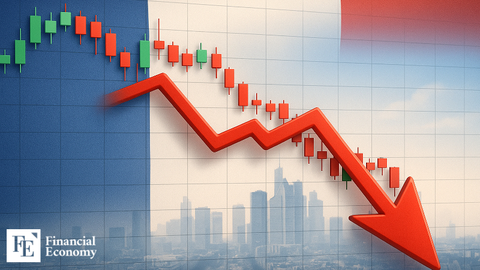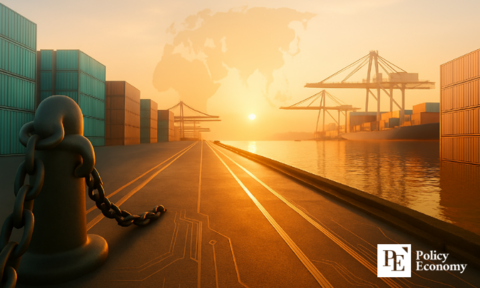Tariffs and Turbulence: Trump’s Trade Gamble and Its Global Consequences
Input
Modified
A Political Statement or Economic Strategy? Tariffs: A Liberation Day for Some, But What About Consumers? The Toll on the U.S. Economy
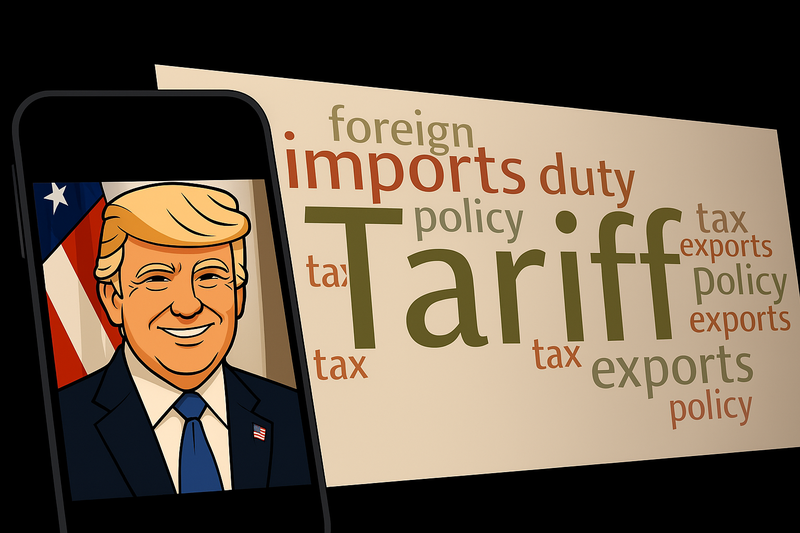
A Political Statement or Economic Strategy?
The global economy is on edge, with financial markets bracing for the potential fallout of a new trade policy from former President Donald Trump. As the U.S. faces the prospect of a resurgence of tariffs under the leadership of Trump, who remains adamant about his “liberation day” rhetoric, concerns about the future of free trade and its impacts on American consumers and the economy are growing.
For many of Trump’s supporters, his call for reciprocal tariffs represents a moment of triumph—a moment of liberation from what they perceive as the unfair trade practices of other nations. But for those with a more in-depth understanding of economics, this shift signals the dawn of American inflation, the decline of free trade, and a possible economic downturn. The rhetoric surrounding Trump’s tariff plans speaks to a larger philosophical battle on the global stage: Should trade be free, or should it be protected by barriers that serve national interests? And, perhaps more importantly, will these moves truly lead to the economic boom that many of his supporters anticipate, or will they serve to destabilize the U.S. economy and consumer market?
Donald Trump’s desire for reciprocal tariffs has become a central talking point in his political narrative. For those loyal to him, his proposals are seen as an effort to stand up to foreign nations that, in their eyes, take advantage of the U.S. in the realm of trade. Trump’s unyielding rhetoric paints a picture of a world where the U.S. no longer submits to international agreements that place its economy at a disadvantage. But as these policies move from political theory into the realm of practical economic policy, the stakes grow higher.
One key element that Trump has been vocal about is his desire for a third term. He has insisted, unequivocally, that he is not joking about the prospect of continuing to hold office and has hinted at various “methods” to circumvent constitutional limitations. While the mechanics of this remain unclear, one thing is certain: the political landscape in the U.S. is shifting, and the implications for trade policy are profound. His approach to tariffs, driven by the belief that American workers have been wronged by globalization, could reverberate across global markets and shift the balance of international trade.
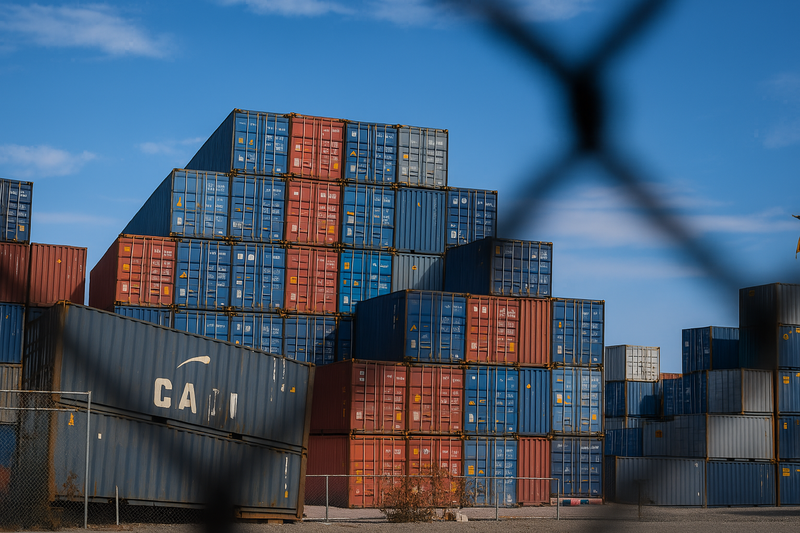
Tariffs: A Liberation Day for Some, But What About Consumers?
Trump’s declaration of a "liberation day" as tariffs are implemented suggests a victory for those who believe the U.S. has been taken advantage of by foreign trading partners. But while this rhetoric resonates with his political base, there are deeper questions about what this policy shift means for everyday American consumers.
One of the key consequences of the implementation of reciprocal tariffs will likely be higher prices. Tariffs are essentially taxes on imported goods, and if these tariffs are imposed on a broad range of products, it is consumers who will ultimately foot the bill. The cost of goods ranging from electronics to clothing could rise, as businesses pass on the additional costs of tariffs to consumers. This could create a scenario where consumers face the double whammy of rising prices for essential goods while their purchasing power decreases.
In the short term, consumers may not immediately feel the effects. However, as tariffs increase, so too will the costs associated with running a business. Manufacturers in the U.S. that rely on imported materials or products may be forced to raise prices in response to higher tariffs, thus driving inflation. For consumers, this translates into a reality where everyday items become more expensive, from groceries to household products. Moreover, global supply chains—already disrupted by the pandemic and other global issues—could face even greater strain as new tariffs create additional friction in international trade. This could lead to further supply shortages, exacerbating price inflation.
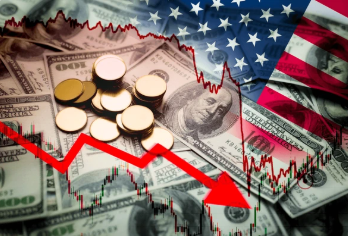
The Toll on the U.S. Economy
While Trump’s proposal for reciprocal tariffs is driven by the desire to protect American workers and businesses from foreign competition, the broader economic impact of these policies cannot be ignored. Historically, the imposition of tariffs has been linked to economic slowdowns, as increased costs and trade tensions create a climate of uncertainty. The U.S. economy, already fragile from the challenges of the pandemic, may find itself at a tipping point.
Many economists argue that the long-term impact of tariffs could be damaging, especially to U.S. consumers. The risk is that consumers will bear the brunt of the increased costs, while businesses, particularly those reliant on global supply chains, will struggle with rising production costs. In the worst-case scenario, this could lead to widespread job losses, as companies attempt to offset their higher costs by reducing their workforce or cutting back on production.
Trump’s unyielding stance on tariffs, in combination with his broader economic policies, could signal a move toward more protectionist measures that may stifle innovation and international competition. Historically, the U.S. has benefited from a free trade environment, which has encouraged global investment and innovation. The introduction of protectionist tariffs could undermine this dynamic, leading to a less competitive environment that hampers economic growth.
The strain on global relationships could also have negative consequences. Countries impacted by the tariffs may retaliate by implementing their own tariffs on U.S. exports, thus creating a cycle of retaliation that could spiral out of control. The result may not just be higher prices but a significant downturn in international trade, potentially causing long-lasting damage to global economic stability.
It’s clear that the implementation of reciprocal tariffs will not come without consequences. Politically, Trump’s stance on tariffs serves as a rallying cry for his supporters, who view him as a defender of American workers. However, for many, his policies represent a troubling turn away from the principles of free trade that have driven global growth for decades.
The impact on American consumers could be significant. While some may see this as a necessary step to ensure that the U.S. is no longer taken advantage of in trade agreements, others worry that the long-term consequences—higher prices, lower wages, and a less competitive economy—will outweigh any short-term benefits. In the grand scheme of things, the U.S. economy is deeply intertwined with global markets, and any disruption to those markets can reverberate back home.
The likely economic downturn resulting from these tariffs raises questions about whether the U.S. is willing to sacrifice its long-term economic interests for short-term political gains. Trump's insistence on reciprocal tariffs, regardless of the economic fallout, suggests a willingness to gamble with the nation's economic future.
Ultimately, while Trump’s proposal for tariffs may be embraced by his political base, it carries significant risks. For American consumers, it could mean higher prices and decreased purchasing power. For the broader U.S. economy, the long-term effects may be felt in the form of inflation, job losses, and a declining global economic position. The U.S. may find itself facing a difficult trade-off: the promise of “liberation” in the form of tariffs, against the reality of a potential economic slump.
As the situation unfolds, the global economy waits with bated breath, preparing for the consequences of the policies that could redefine the future of American trade and economic relations. It’s a precarious moment in history, one that will shape the trajectory of the U.S. economy and its place in the world for years to come.



